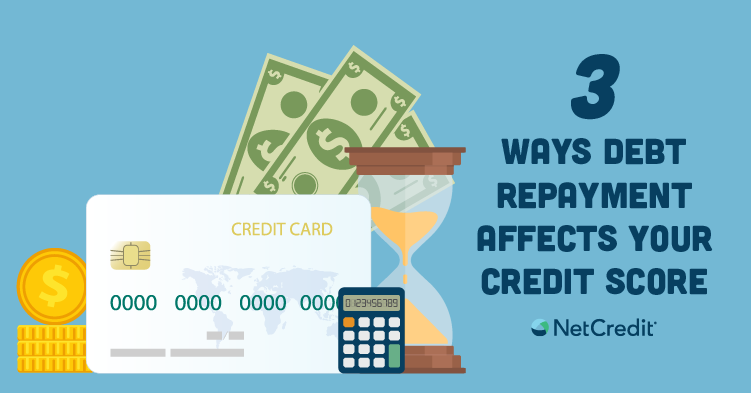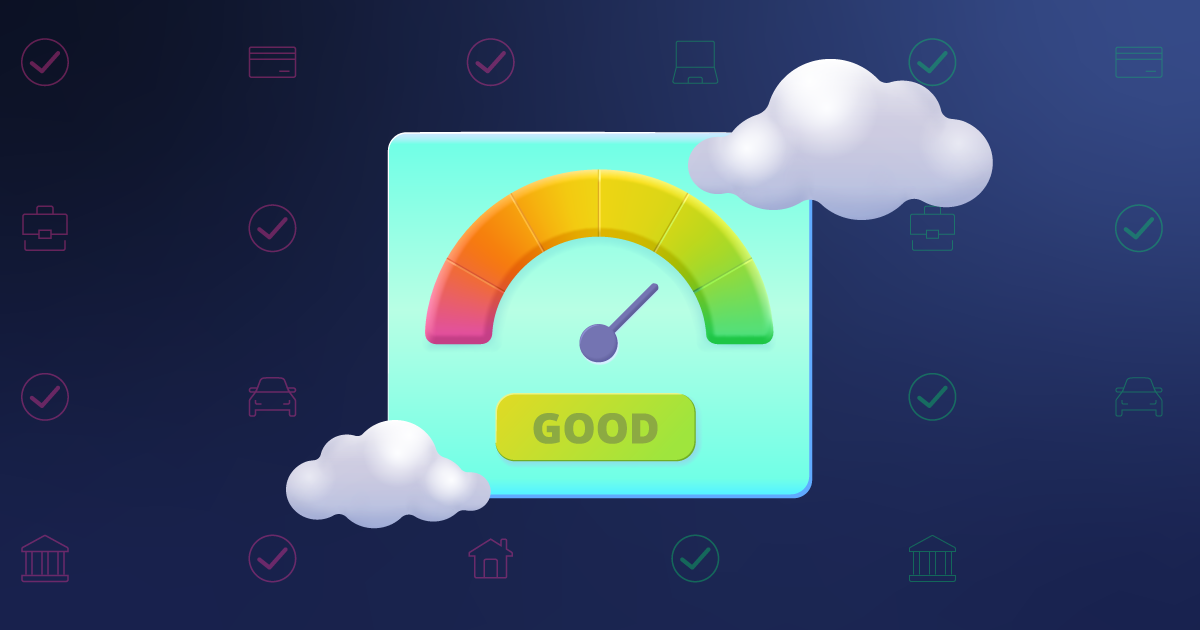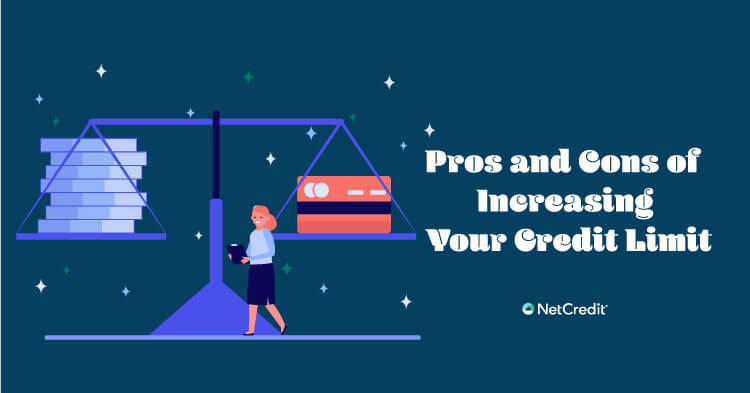Credit scores are three-digit numbers that are calculated based on information from your personal credit usage. This includes your payment history, the total amount that you owe, the age of your oldest account, new credit and type(s) of credit in your name. It’s important to note that not all factors have the same impact — payment history makes up 35% of your score, the amount you owe accounts for 30%, credit history length affects 15%, and both credit mix and new credit make up 10%.
When you repay debt, a few factors can affect your score. We’ll show you a few different ways that your score can improve when you repay or eliminate debt.
What Happens to Your Credit When You Repay Some Debt?
We’ll assume that you have at least one form of debt, like a credit card or personal loan, and that you don’t continue to use more credit as you repay the balance. If you make on-time payments to lower your debt, you can raise your credit score over time. Making larger, more aggressive payments may help boost your score faster than paying just the minimum amount(s) due.
However, if you continue to use credit without making headway on your credit utilization ratio, or the percentage of your total credit that you’re using, your credit score likely won’t go up much, if at all. In fact, if the utilization ratio increases or you make a late payment, your score could actually decrease. Aim to keep your total credit utilization ratio at 30% or less. For example:
Eric has three different personal credit accounts: a $2,000 personal loan he recently took out and two credit cards. According to his most recent statements, his outstanding debt totals $4,500, and his total credit limit is $10,000. To find his utilization ratio, he’ll divide his total debt balance by his credit limit and multiply by 100 for the percentage:
$4,500/$10,000*100 = 45%
With a 45% utilization ratio, Eric is using almost half of his available personal credit, which might make it harder to keep up with payments!
What Happens to Your Credit When You Repay All Debt?
When you eliminate all of your debt, your score should improve because a third of it is determined by your outstanding amount owed. If you had a fair or poor credit rating before you repaid the debt(s), your score could increase more significantly. Maintaining responsible credit habits can help you steadily raise your score over time.
How Does Closing a Credit Account Affect Your Credit?
If you pay off an unsecured debt, such as a credit card or revolving loan, it might seem logical to close that account. However, doing so could actually lower your credit score. This can happen for multiple reasons. For instance, the average age of your accounts lowers temporarily, which accounts for 15% of your score. Additionally, closing a credit account also reduces your total credit limit. So if you use credit again in the future, you’d have a higher utilization ratio than if you kept the credit line open, which can lower your score.1 Secured debts, such as car loans or mortgages, work differently in that repaying the loan closes the account.
It’s usually not necessary to close most credit accounts once you’ve repaid your debt; depending on the type of account, it might be beneficial to have quick access to credit when you need it again.
References
1McGurran, B. (2019). Should You Cancel Unused Credit Cards or Keep Them?
The information in this article is provided for educational and informational purposes only, without any express or implied warranty of any kind, including warranties of accuracy, completeness or fitness for any particular purpose. The information in this article is not intended to be and does not constitute financial, legal or any other advice. The information in this article is general in nature and is not specific to you the user or anyone else.






